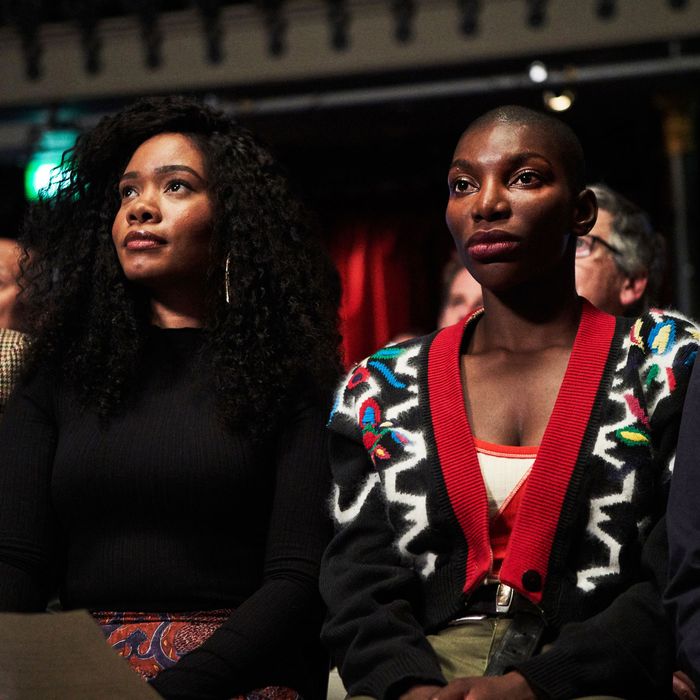

Her strengths never ceased to exist, even when rusty or hidden. Terry never lost sight of Arabella's strengths, even when Arabella did.
:no_upscale()/cdn.vox-cdn.com/uploads/chorus_asset/file/21702324/JAN22_D066_EP07_144_1__0.jpg)
She was an intelligent, witty, fun, and loving human being with a burning passion for discovery, writing, and truth. Arabella, while influenced by traumatic events external to herself, was not her rape. It is common for people who have experienced trauma, because it can be so all-consuming, to have trouble separating themselves as distinct entities from their trauma. And even if Arabella was trying her best, Terry always reminded her that she could do better – she could write, she could grow, and she could find herself, even if it was a different self, again.īuilds on Strengths – Trauma Survivors are Not Defined by Their Damage It wasn't about Terry, even if she dealt with the consequences of Arabella going through the thick of her recovery. Terry didn't take Arabella's self-centeredness personally, and she trusted the person – the Arabella – she was best friends with, or as they would say, "Your birth is my birth your death is my death." Terry knew Arabella didn't want to be in the situation she had been put in, and she was trying her best to find her way out. Those small moments said, without saying, "I may not agree, but I'm with you and I respect you." Knows That Their Friend Is Trying Their Best AND Holds Them Accountable This isn't to say a trauma-informed friend can't have feelings: there were times where Terry articulated her feelings – an eye roll about Theo, a light jab about social media. She listened when Arabella was ready to face the baggage underneath her bed, and when she needed company frequenting the bar from the night of the rape. She didn't judge Arabella for finding stability in social media advocacy (which eventually consumed her), when Arabella brought problematic friend Theo to her birthday, or when Arabella lost funding for her unwritten book. Terry provided space for Arabella to express her trauma when she was ready. While all three characters keep each other afloat, the show highlights Terry's especially trauma-informed manner towards main character Arabella.
#I MAY DESTROY YOU KWAME HOW TO#
Watching I May Destroy you may be cathartic for the many people who have experienced trauma, but it's also a lesson on how to be a trauma-informed friend. At the same time, Terry, "nurturer" extraordinaire, is re-processing being manipulated into a threesome, but tries to avoid her own trauma by focusing on her friends. Meanwhile, Kwame holds emotional intimacy at arm's length, paralyzed by his sexual assault at the hands of a man who he had previously chosen to have intercourse with.

TRIGGER WARNING: Discussion of sexual assault and rape.Īrabella oscillates between insight into and dissociation from her understandably erratic behaviors after being roofied and raped. All three experience nuanced forms of sexual trauma and deal differently. The show revolves around the stories of three complex characters battling their own angels and demons: Arabella, a Ghanaian woman loosely-based on Coel IRL, her friend Kwame, a Ghanaian gay-identifying male, and Terry, her best friend. While the show itself could be considered triggering because of its intimate tango with sexual trauma, Michaela Coel's I May Destroy You is spot on in its depiction of the inner, outer, and everything in-between forms that trauma morphs into as it takes life hostage.


 0 kommentar(er)
0 kommentar(er)
